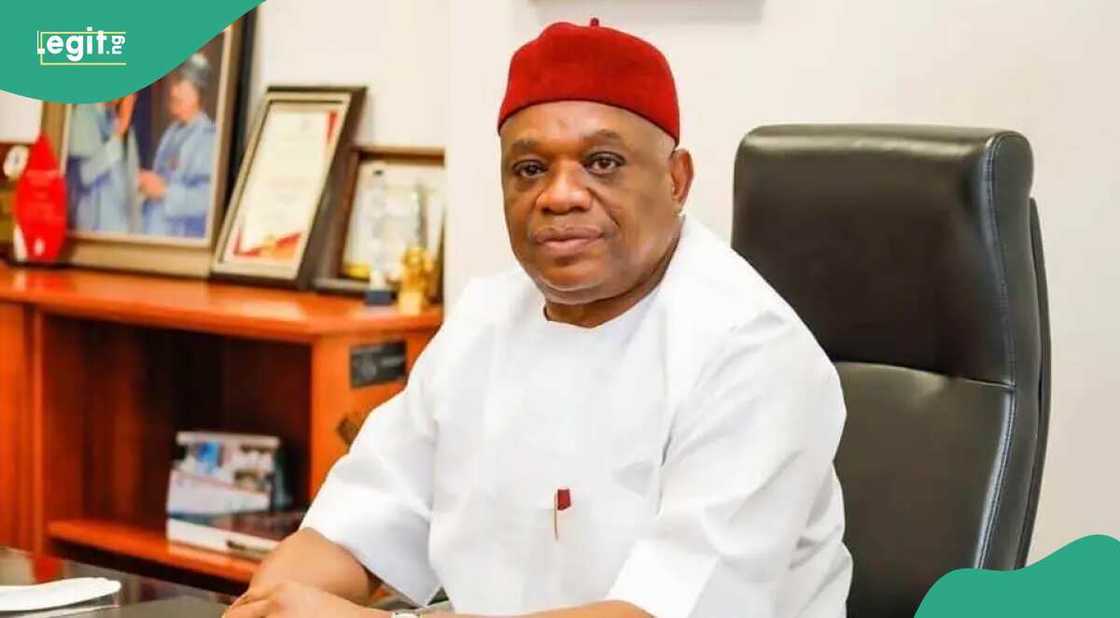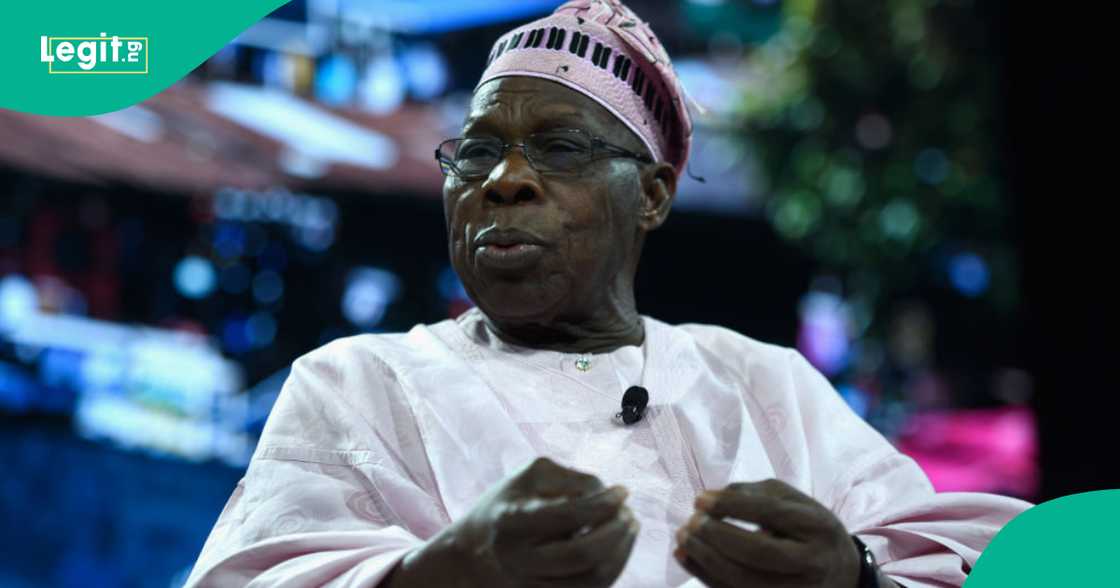Allegations of political intrigue have again surfaced in Nigeria’s dynamic political landscape, as Senator Orji Uzor Kalu publicly alleged that former President Olusegun Obasanjo sought a constitutional amendment to allow himself a third presidential term. This latest statement comes amid ongoing debates about Nigerian democracy, term limits, and the legacies of past leaders.
Senator Kalu, who currently represents Abia North in the Senate and previously served as Abia State Governor, spoke during a televised interview on Channels TV’s Politics Today. According to the Senator, the topic of an extended presidency was not merely rumour but a deliberate move he claims was openly discussed behind closed doors during Obasanjo’s administration. Kalu asserted, “Obasanjo himself informed me about the plan to seek a constitutional amendment for an additional term,” challenging the former President’s repeated public denials.
Kalu claims Obasanjo planned constitutional amendment
“With due respect to President Obasanjo, what he said in Ghana was a naked lie, a naked fallacy. Many people who were part of that period are still alive — David Mark is alive, others are alive. They know the truth,” Kalu said.
The controversy reignited after former President Obasanjo, while participating in the Goodluck Jonathan Foundation’s Democracy Dialogue in Accra, Ghana last month, categorically dismissed reports that he had ever sought a third term in office. According to Obasanjo, notions of him aspiring to prolong his tenure beyond the two-term constitutional limit were fabrications with no basis in fact.
“There is no Nigerian dead or alive that would say I called him and told him I wanted a third term. I’m not a fool. If I wanted a third term, I know how to go about it,” Obasanjo had said.
Despite the denial, Senator Kalu maintained that he had firsthand knowledge of the alleged third term proposal. He recalled in detail being personally invited to the Presidential Villa by President Obasanjo during his tenure as Abia State Governor. There, Kalu alleges, the President revealed his plan to amend Nigeria’s 1999 Constitution, which currently bars any leader from holding the office for more than two four-year terms.

Source: Facebook
“He invited me to the Villa and told me about the third term. Senator Uche Chukwumerije brought ₦50 million, which they shared, and they asked me if I would take as a governor,” Kalu said.
“I said no — go and give it back. Even the national security adviser (Nuhu Ribadu) would know Obasanjo was lying; he was at the centre of it all.”
According to Kalu, a fallout ensued between himself and Obasanjo when he rejected the proposed constitutional change and decided to notify international leaders about the discussions. “That marked the point where my relationship with him deteriorated,” the Senator told viewers, suggesting that his principled opposition contributed to long-standing political tension between him and the country’s former leader.
“My quarrel with him started when I told Presidents Thabo Mbeki of South Africa and George Bush of the United States that Obasanjo was running for a third term,” he added.
“I even told Nelson Mandela, may his soul rest in peace. They all confronted him. I don’t know why Nigeria should be built on lies by statesmen.”
Kalu explained that while a number of state governors in office at the time were influenced by Obasanjo’s idea, not everyone was willing to support such a significant shift in Nigeria’s democratic process. “He had managed to convince some governors, but people like me and a handful of others said no. As a committed Christian, I swore an oath on the Bible to serve only eight years in office and I intended to keep to that commitment,” Kalu disclosed during the interview.
His comments sparked renewed discussion about Nigeria’s democratic journey, particularly the critical function of constitutional safeguards in preventing prolonged rule by any one leader. Political analysts have noted that Nigeria, as Africa’s most populous democracy, remains a bellwether for the region in upholding and defending democratic principles. The question of extending term limits or circumventing constitutional barriers has often raised concern both locally and internationally, as witnessed in other West African nations with recent constitutional crises.
Public reactions and legal perspective
The debate over the alleged third term bid is not new, but Kalu’s fresh account brings an insider’s perspective. Civil society groups, political analysts, and ordinary Nigerians have reacted with mixed feelings—some see his claims as consistent with past suspicions, while others question the motivation or timing for raising these issues now.
Lagos-based political scientist Dr. Ngozi Eze noted, “Nigeria’s constitutional order is designed to ensure alternation of power; any attempt to modify term limits undermines not only the spirit but the letter of our democracy.” Meanwhile, Chinenye Okafor, a legal commentator, explained that the National Assembly, according to the constitution, must pass any amendments by a two-thirds majority—something that proved contentious and ultimately unsuccessful during the 2006 constitutional review debates.
Looking back, the third term saga in Nigeria generated significant national debate and protests in 2006. Obasanjo has always denied involvement, insisting he never pressured lawmakers. Yet, persistent reports and accounts from politicians—including Kalu—have kept the conversation alive, particularly as Nigeria continues to face questions about the integrity of its leadership class.
Wider implications for Nigeria and West Africa
The topic of presidential term limits resonates beyond Nigeria, particularly across West Africa, where a trend of constitutional amendments to remove or extend term restrictions has emerged. Examples in Guinea, Côte d’Ivoire, and Togo have led to political instability and international concern. According to the International Institute for Democracy and Electoral Assistance (IDEA), strong term-limit protections reduce the risk of authoritarian backsliding.
Maintaining term limits has long been seen as essential to preventing the concentration of power and fostering accountable, peaceful transitions. As Nigeria continues to play a leadership role on the African continent, its ability to set an example in respecting democratic norms remains critical both locally and on the world stage.
Obasanjo on discarding English names and colonial influences
In a related update, former President Obasanjo also made headlines for renouncing his English name “Matthew,” emphasizing a desire to break with colonial legacies. Speaking in Abeokuta at his 88th birthday celebration, he explained he prefers to identify only by his Yoruba names. Urging Africans to reclaim their heritage, Obasanjo called on the continent’s people to move beyond remnants of colonial history, including Western names, in order to forge a stronger sense of identity.
Many cultural commentators welcomed Obasanjo’s position, noting a wider Pan-African movement encouraging the use and revival of indigenous identities and traditions. “This conversation is deeper than a name; it’s about self-knowledge and pride in our origins,” shared Adeyemi Adebayo, a Yoruba language advocate, in response to Obasanjo’s remarks.
Obasanjo’s view has sparked discussion in Nigeria and beyond, as more Africans reconsider the influence of colonialism in public and personal life. Some agree that retaining traditional names is a step toward dignity and cultural revival, while others argue that identity is about more than just nomenclature and must be reflected in action as well.
Challenges, takeaways, and lessons for the future
Nigeria’s steadfast adherence to term limits remains a crucial part of its democratic structure. Allegations of attempts to override such limits continue to serve as important reminders of the need for eternal vigilance and active citizenship. For West Africa and the continent as a whole, respecting the constitutional order and championing indigenous identities reflect both local aspirations and a global trend toward reclaiming agency and ensuring responsible governance.
As local and global observers analyse Kalu’s allegations and Obasanjo’s responses, many Nigerians are left wondering about the undercurrents shaping the nation’s history and the lessons to draw for future generations of leaders. The interplay between leadership ambition, legal safeguards, and popular vigilance remains as relevant as ever.
What’s your perspective on Nigeria’s leadership history and the importance of constitutional term limits? Do you agree with calls to reject colonial influences in our daily lives? Share your thoughts in the comments below and join the ongoing conversation!
Have a story you want to share or sell? We’d love to hear from you! Email us at story@nowahalazone.com to get your story featured or discuss story sales.
For general support, reach out at support@nowahalazone.com.
Stay connected and join the discussion—follow us on Facebook, X (Twitter), and Instagram for more news and community stories!










